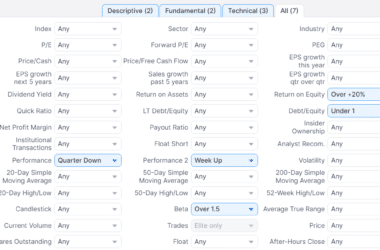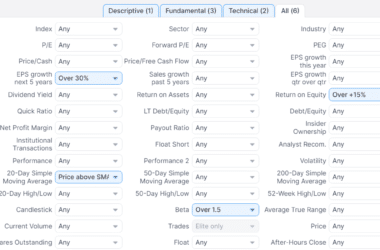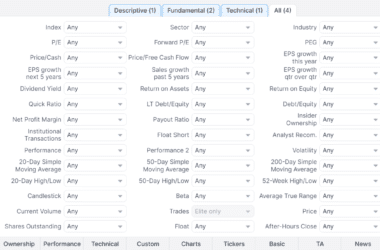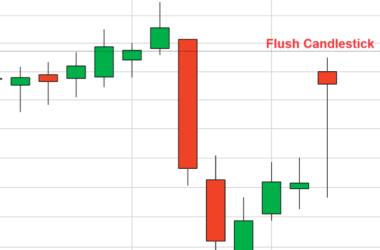“Sell in May and Go Away” marks the start of the weakest 6 months of the year for the stock market (May – October).
What Does “Sell in May and Go Away” Mean?
The phrase “sell in May and go awayThe phrase “sell in May and go away” is an old adage that has been used by investors for decades. The phrase is often used as a warning to investors who may be considering inve... More” is an old adage that has been used by investors for decades. The phrase is often used as a warning to investors who may be considering investing in the stock market during the summer months. The phrase is based on the idea that the stock market tends to perform poorly during the summer months, and that investors should wait until after the summer to start investing.
Is It Good to Sell in May and Go Away?
The answer to this question depends on the individual investor and their goals. For some investors, it may be a wise decision to wait until after the summer to invest, as the stock market may be more volatile during the summer months. Other investors may not be comfortable with the risks associated with investing during the summer months and prefer to invest at other times. Ultimately, it is up to the individual investor to decide if “sell in May and go away” is the right strategy for them.
What Are the Risks of Selling in May and Going Away?
The primary risk of selling in May and going away is that the stock market may perform better than expected during the summer months. If the market does perform well during the summer, investors who have sold their stocks in May will miss out on potential profits. Additionally, if the market performs poorly, investors who have sold their stocks in May will miss out on potential losses.
What Are the Advantages of Selling in May and Going Away?
The primary advantage of selling in May and going away is that investors can reduce their exposure to the stock market during the summer months. This can be beneficial for investors who are concerned about the potential volatility of the stock market during the summer months. Additionally, investors who sell in May and go away can take advantage of the extra time to research potential investments and prepare for the rest of the year.
What Are the Alternatives to Selling in May and Going Away?
For investors who are not comfortable with the risks associated with “sell in May and go away”, there are several alternatives. These include investing in index funds, investing in commodities, or investing in bondsUnited States Treasury securities are debt instruments issued by the United States government to finance its spending. Treasury securities come in a variety of forms, including bil... More. Each of these alternatives has its own set of risks, and investors should research each option thoroughly before making a decision.
What Are the Benefits of Investing in Index Funds?
Index funds are a type of mutual fund that holds a basket of stocks that represent an entire sector or market. This type of investment is typically less risky than investing in individual stocks, as the fund is diversified across a variety of different stocks. Additionally, index funds tend to have lower fees than other types of mutual funds, making them an attractive option for investors who are looking for a low-cost way to invest in the stock market.
What Are the Benefits of Investing in Commodities?
Investing in commodities can be a less risky alternative to investing in the stock market. Commodities typically have a lower correlation to the stock market, meaning they are less likely to be affected by stock market volatility. Additionally, investing in commodities can provide investors with access to the global markets, as many commodities are traded internationally.
What Are the Benefits of Investing in Bonds?
Bonds are a type of debt instrument that pays a fixed rate of interest over a set period of time. Investing in bonds can be a safe way to generate income, as the interest payments are usually guaranteed by the issuer. Additionally, bonds can be used as a way to diversify an investment portfolio, as they tend to have a low correlation to the stock market.
Conclusion
The phrase “sell in May and go away” is an old adage that has been used by investors for decades. While the phrase may be a useful warning for some investors, it is ultimately up to the individual investor to decide if this strategy is right for them. Additionally, there are several alternatives to “sell in May and go away”, including investing in index funds, investing in commodities, or investing in bonds. Each of these alternatives has its own set of risks and benefits, and investors should research each option thoroughly before making a decision.
FAQs
Q1. What does “sell in May and go away” mean?
A1. “Sell in May and go away” is an old adage that has been used by investors for decades. The phrase is often used as a warning to investors who may be considering investing in the stock market during the summer months.
Q2. Is it good to sell in May and go away?
A2. The answer to this question depends on the individual investor and their goals. For some investors, it may be a wise decision to wait until after the summer to invest, as the stock market may be more volatile during the summer months. Other investors may not be comfortable with the risks associated with investing during the summer months and prefer to invest at other times.
Q3. What are the risks of selling in May and going away?
A3. The primary risk of selling in May and going away is that the stock market may perform better than expected during the summer months. If the market does perform well during the summer, investors who have sold their stocks in May will miss out on potential profits. Additionally, if the market performs poorly, investors who have sold their stocks in May will miss out on potential losses.
Q4. What are the advantages of selling in May and going away?
A4. The primary advantage of selling in May and going away is that investors can reduce their exposure to the stock market during the summer months. This can be beneficial for investors who are concerned about the potential volatility of the stock market during the summer months. Additionally, investors who sell in May and go away can take advantage of the extra time to research potential investments and prepare for the rest of the year.
Q5. What are the alternatives to selling in May and going away?
A5. For investors who are not comfortable with the risks associated with “sell in May and go away”, there are several alternatives. These include investing in index funds, investing in commodities, or investing in bonds. Each of these alternatives has its own set of risks, and investors should research each option thoroughly before making a decision.
Q6. What are the benefits of investing in index funds?
A6. Index funds are a type of mutual fund that holds a basket of stocks that represent an entire sector or market. This type of investment is typically less risky than investing in individual stocks, as the fund is diversified across a variety of different stocks. Additionally, index funds tend to have lower fees than other types of mutual funds, making them an attractive option for investors who are looking for a low-cost way to invest in the stock market.
Q7. What are the benefits of investing in commodities?
A7. Investing in commodities can be a less risky alternative to investing in the stock market. Commodities typically have a lower correlation to the stock market, meaning they are less likely to be affected by stock market volatility. Additionally, investing in commodities can provide investors with access to the global markets, as many commodities are traded internationally.
Q8. What are the benefits of investing in bonds?
A8. Bonds are a type of debt instrument that pays a fixed rate of interest over a set period of time. Investing in bonds can be a safe way to generate income, as the interest payments are usually guaranteed by the issuer. Additionally, bonds can be used as a way to diversify an investment portfolio, as they tend to have a low correlation to the stock market.
💥 GET OUR LATEST CONTENT IN YOUR RSS FEED READER
We are entirely supported by readers like you. Thank you.🧡
This content is provided for informational purposes only and does not constitute financial, investment, tax or legal advice or a recommendation to buy any security or other financial asset. The content is general in nature and does not reflect any individual’s unique personal circumstances. The above content might not be suitable for your particular circumstances. Before making any financial decisions, you should strongly consider seeking advice from your own financial or investment advisor.







